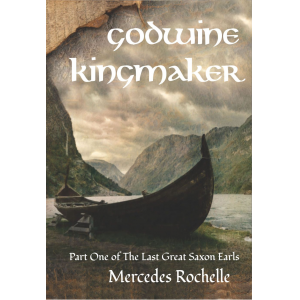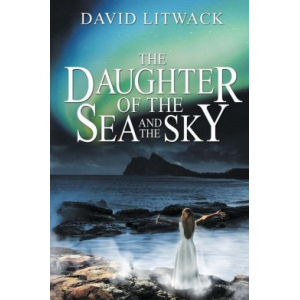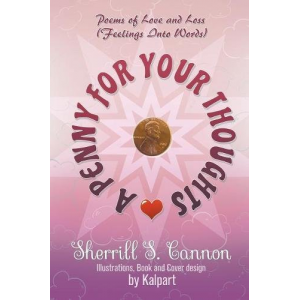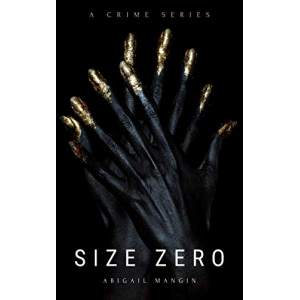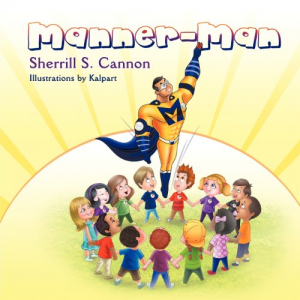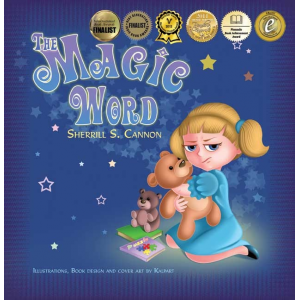- Author
- Book
- Story behind the book
- Media Links
- Reviews

Nina Palmer
About
Nina's childhood home was nestled in Matilija Canyon, a remote area outside of Ojai, CA. Her home was secluded which granted a unique and enchanting place to grow up. It is no wonder that her work is filled with its imagery. Her earliest writings of poetry began as early as elementary school. It is a realized talent that has remained throughout her life.
Nina's first book, Through The Trees, was released in 2014. It is a composition of poetry written from personal experiences with toxic relationships and the grief that occurs at its end. She is now currently working on the sequel, to be titled Reaching The Castle Wall a composition of heartache and love poems derived from the fairy tales we all grew up with. It is scheduled to be released for Valentine's Day 2018.
In the meantime, a series of children's books are also underway starting with a follow along story titled Muffins With Mommy. It's a simple recipe for muffins with the instructions written out in a rhyming story format. Now available on Kindle.
Nina now lives in Meridian, Idaho with her husband and two sons.
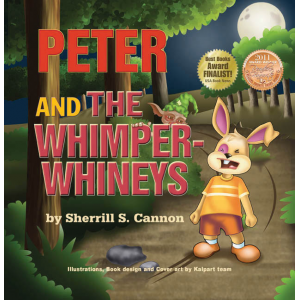
Peter and the Whimper-Whineys
Description
<span style="line-height:115%;font-family:Calibri, 'sans-serif';font-size:11pt;"><span style="font-family:Calibri;">Peter and the Whimper-Whineys is about a small rabbit who whines all the time. His mother cautions him that if he keeps on whining and crying, he’ll have to go live with the Whimper-Whineys. One night Peter hops into the dark forest.<span> </span>He meets some Whimper-Whineymen and discovers that not only do the Whimper-Whineys whine all the time, but they are very ill-mannered and rude. He discovers that everything is sour in Whimper-Whineyland and decides his mother was right! If only he can get back home… a recent critique, “Though there are other books out there for children about whining, I cannot imagine any parent or guardian not wanting to read this book to their child!... <span> </span>Parents everywhere applaud you!” </span></span>
Story Behind The Book
I am a wife, a mother of a 17 month old, expecting number two in March, and a writer. Much of my nature poetry is a reflection of my childhood in CA, I was transplanted to ID as a teen and have remained ever since. I wrote poetry ever since I could I write. I used poetry as a self therapy. I grew up with a mentally ill mother who was very verbally and emotionally abusive. Writing was a way to express myself and to cope with the challenges I faced. I hadn't written poetry in many years, ever since I left home really. When I became pregnant with my son I was very fearful of the parent I would become. I was afraid of repeating the phrases and behaviors of my mother. As so many mothers say "because I said so" just as theirs said to them I was fearful of the things I could repeat. I realized that I still harbored much anger, hurt, and pain from this relationship. Although other toxic relationships followed after I feel my childhood was the root, the beginning, of my uncanny ability to attract toxic people to myself. I decided I had to do something to force a change before my son was born. I decided I should write again. After much self reflection I realized that I may not have allowed myself to fully express and heal from the pains of my past, and if I did I could heal. I could be the mother my son deserved. I so started writing again. Through The Trees is a healing process that follows the five stages of grief. I write mostly in nature metaphor, and unintentionally at first, this book actually follows a plot line. A person becomes lost in the woods, struggles to find their way out, and comes out the other side a changed person. Today, that is what I am, a changed person. I am healed. I have great hope that this book can serve as a guide for others who have the same challenge letting go of their past hurts. I hope that they can make their way out of the woods, finally able to see the forest Through The Trees.
Media Links
Reviews
<p><span style="font-family:verdana, arial, helvetica, sans-serif;font-size:small;line-height:normal;">"Palmer's poems depict through natural imagery of rain, sunshine and forests what it is like to live within and then gradually to be able to leave a toxic love relationship. Palmer's poems radiate wisdom that can guide others along similar routes out of suffering.</span><br style="font-family:verdana, arial, helvetica, sans-serif;font-size:small;line-height:normal;" /><br style="font-family:verdana, arial, helvetica, sans-serif;font-size:small;line-height:normal;" /><span style="font-family:verdana, arial, helvetica, sans-serif;font-size:small;line-height:normal;">The poems in Palmer's [book] are at once immediately accessible and at the same time deeply enlightening. If you have been or are now involved with someone who has toxic impacts on you, and whether you think of yourself as someone who reads poetry or have never read a poem before, I highly recommend this book." </span><b style="font-family:verdana, arial, helvetica, sans-serif;font-size:small;line-height:normal;">-</b><i style="font-family:verdana, arial, helvetica, sans-serif;font-size:small;line-height:normal;"><b>Psychology Today</b></i></p>
